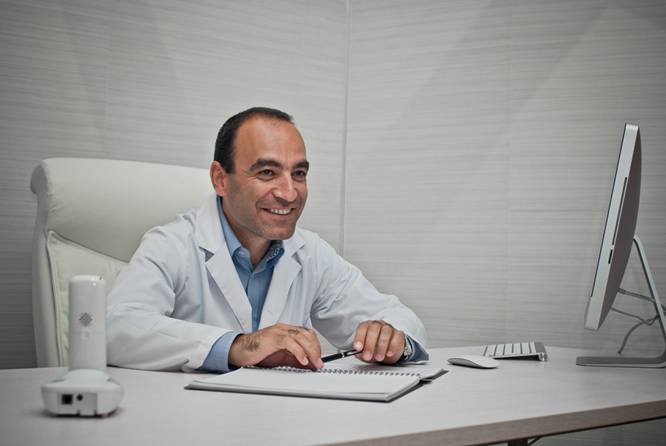RUDN expert speaks about the dangers of alcohol and home-made antiseptics for hand skin
 Ministry of Health recommends
Ministry of Health recommends
The recommendations of the Ministry of Health of the Russian Federation concerning coronavirus pandemic, as an important measure to prevent infection, indicate washing hands with soap as often as possible. If there is no water and soap around, it is recommended to use disposable alcohol wipes or moisturizing sanitary napkins, as well as antiseptics/sanitizers.
The good news is that many took these recommendations seriously and began to wash their hands more often and treat them with antiseptics. The bad news is that constant exposure of the skin to water, soap, and especially alcohol can adversely affect the skin. Even healthy people will experience discomfort - hand skin may begin to dry and peel. Those who suffer from eczema, dermatitis and allergies have more acute problems: severe irritation, redness of the skin, itching and painful cracks.
RUDN expert recommends: properly selected detergents for washing and disinfecting will help to keep the skin of your hands healthy.
Why is laundry soap a bad idea?
During an epidemic, many prefer laundry soap to regular soap. It is known not only to clean the most persistent dirt, but also kill microbes.
Alkali in laundry soap really kills microbes. But it also destroys natural skin protection - a thin film consisting of fatty acids, which means the skin not only begins to lose moisture, but also becomes more vulnerable to the penetration of bacteria and viruses. When we use products with neutral PH - 5.5, we cleanse the skin without damaging its natural defense. It is important to remember: not only laundry soap, but also regular hand soap, even liquid and cream soap, can be alkaline. The pleasant smell of soap is not a guarantee of its safety for the skin. Read the composition, look for PH - neutral (5.5) soap.
Alcohol dries the skin
When choosing a disinfectant pay attention to its composition. Alcohol will always dry the skin. Ethylene glycol - an oxygen-containing organic compound, the so-called dihydric alcohol damages the skin less.
Homemade antiseptics may be dangerous
There are many recipes for homemade antiseptics on the Internet, including alcohol, hydrogen peroxide, chlordexidine, miramistin, etc. - different ingredients in different recipes. Most home antiseptics include glycerin. It is known that it is useful for the skin - it helps to retain moisture in the epidermis. In a home-made antiseptic, glycerin most likely serves to ensure that the antiseptic can be distributed over a large area.
“With or without glycerin, homemade antiseptics are not a good idea,” says Anton Molochkov. - It is difficult to observe proportions, there may not be enough alcohol for the disinfecting effect, and it will harm the skin anyway. In my opinion, regular hygiene products are absolutely enough. Come home and wash your hands thoroughly with regular soap."
How to help hand skin?
If the skin begins to suffer, dry and peel from frequent washing and the use of antiseptic agents, the expert advises using emollients - this is a group of cosmetics that trap water in the skin cells. There are a lot of them now: based on uric acid, hyalouranic acid, etc. Choose any you like.
People suffering from skin manifestations of allergies, dermatitis and eczema should follow all the recommendations of their doctor and use the usual medications (including creams and ointments).
RUDN University staff and alumni received state and departmental awards at the State Kremlin Palace during a festive concert in honor of RUDN 65th anniversary.
An architectural-landscape project by a 5th-year student of RUDN has been shortlisted for the annual International Professional ADD AWARDS 2024 for architects, designers, and developers in the “Urban Environment” category.
RUDN University employees’ work and contribution to the development of the university cannot go unappreciated. The Ministry of Science and Higher Education of Russia recognizes talented university employees and present them with various departmental and state awards.